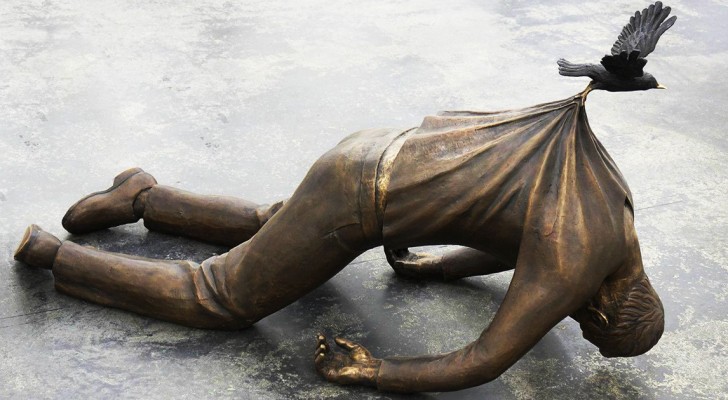Last Sunday, we talked about the spiritual perspective of disappointment. We recognized that disappointment was something that even our Lord experienced in his life, ministry and relationships with his beloved disciples. We used an illustration from Vincent van Gogh’s life to highlight the importance of fighting back, not giving up and grabbing on life, love and light in times of disappointment and heartbreak.
Today we will reflect on how faith and our relationship with God can transform how we experience disappointment. Faith – honest and pure faith renews, purifies and transfigures every aspect of our lives, how we see ourselves and the world, how we think and feel, reason and react. It does not mean we lose ourselves in faith, but rather faith lifts us above anything we have ever experienced and from there, we see our lives from a radically different point. It is truly impossible to cover everything on the topic in a single sermon, so we will instead reflect on the essential aspects, hoping that it will ignite in our hearts a desire to explore and learn more about this subject.
“Expectation is the root of all heartache”, wrote William Shakespeare. Disappointments are born when there is a gap between our hopes and reality. The more significant the gap, the bigger is the disappointment we experience. Paradoxically, we might experience disappointment even when our hopes become a reality. In such cases, we might feel dissatisfied, the end result might be different from what we expected or the cost of achieving our dream might outweigh the result. We saw this vividly demonstrated in Goethe’s Faust, which we discussed a few weeks ago. Furthermore, our hopes and desires are often subconscious and not premeditated and calculated. They are rather free-floating beautiful clouds that cover and touch virtually everything we do, hope for and desire. Therefore, almost anything we do can lead to and end in disappointment.
Faith fundamentally changes how we as Christians form expectations and process disappointment. It gives us a profound conviction that even though our motivations and dreams might be noble and true, God alone knows what and when we need in our lives. We trust in his abundant love and care that at the right time and place, God will indeed answer our prayers. And if we find our hopes and dreams crushed, we are comforted that either God has something better on the horizon for us or we are reminded that our desires sometimes come to life within the framework of the divine timeline and not of our own.
Often, when facing disappointment, our first instinct is denial. We know that disappointment will result in anger, frustration or sadness and stress. In such moments, denial might appear as a more appealing subconscious choice. But a life of denial has no place in Christian spirituality where self-examination and everyday penance and reflection expose our souls and minds to constant and consistent self-awareness. Therefore, for a Christian faithful, the only real alternatives will remain either to resort to a dark path that leads to anger, blame and stress or to embrace sadness.
Our faith will do everything to steer us away from seeking refuge in anger, frustration and blame. There is a very good reason we confess these publicly and denounce them every Sunday before receiving the Holy Eucharist. Therefore, at the end of the day, sadness will remain the only option for the Christian soul. But above all, the life-giving waters of faith sustain us through the times of joy and sorrow, heartbreak or happiness and remind us that we are precious children of God who is always and in everything with us, guarding and guiding us.


